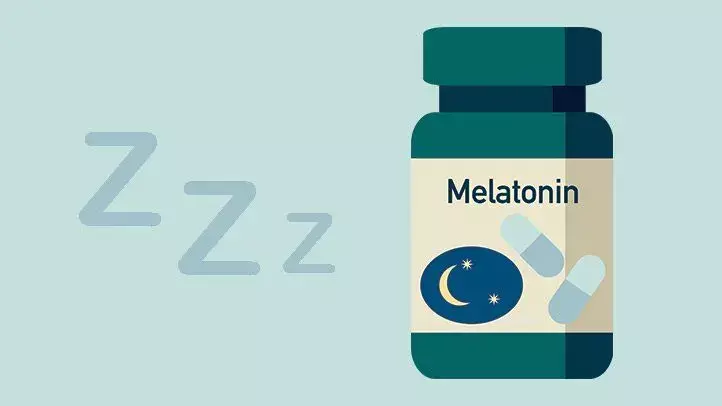- Home
- Medical news & Guidelines
- Anesthesiology
- Cardiology and CTVS
- Critical Care
- Dentistry
- Dermatology
- Diabetes and Endocrinology
- ENT
- Gastroenterology
- Medicine
- Nephrology
- Neurology
- Obstretics-Gynaecology
- Oncology
- Ophthalmology
- Orthopaedics
- Pediatrics-Neonatology
- Psychiatry
- Pulmonology
- Radiology
- Surgery
- Urology
- Laboratory Medicine
- Diet
- Nursing
- Paramedical
- Physiotherapy
- Health news
- Fact Check
- Bone Health Fact Check
- Brain Health Fact Check
- Cancer Related Fact Check
- Child Care Fact Check
- Dental and oral health fact check
- Diabetes and metabolic health fact check
- Diet and Nutrition Fact Check
- Eye and ENT Care Fact Check
- Fitness fact check
- Gut health fact check
- Heart health fact check
- Kidney health fact check
- Medical education fact check
- Men's health fact check
- Respiratory fact check
- Skin and hair care fact check
- Vaccine and Immunization fact check
- Women's health fact check
- AYUSH
- State News
- Andaman and Nicobar Islands
- Andhra Pradesh
- Arunachal Pradesh
- Assam
- Bihar
- Chandigarh
- Chattisgarh
- Dadra and Nagar Haveli
- Daman and Diu
- Delhi
- Goa
- Gujarat
- Haryana
- Himachal Pradesh
- Jammu & Kashmir
- Jharkhand
- Karnataka
- Kerala
- Ladakh
- Lakshadweep
- Madhya Pradesh
- Maharashtra
- Manipur
- Meghalaya
- Mizoram
- Nagaland
- Odisha
- Puducherry
- Punjab
- Rajasthan
- Sikkim
- Tamil Nadu
- Telangana
- Tripura
- Uttar Pradesh
- Uttrakhand
- West Bengal
- Medical Education
- Industry
Melatonin may exacerbate asthma leading to nocturnal symptoms, finds study

Patients with asthma often experience a worsening of asthmatic symptoms at night in so-called "nocturnal asthma." According to reports, more than 50% of asthma deaths occur at night, exposing a link between nocturnal asthma symptoms and asthma deaths. Although some have proposed several triggers that explain the pathogenesis of nocturnal asthma, the precise mechanisms regulating this asthma phenotype remain obscure.
Now, a research group led by Kentaro Mizuta from Tohoku University Graduate School of Dentistry has discovered that melatonin, a sleep hormone, worsens asthma.
Asthma patients suffer from bronchoconstriction, where the smooth muscles of the bronchus - the pathway that moves air to and from your lungs - contract. To ease this, many take a bronchodilator, a medicine which widens the bronchus.
However, melatonin, which is often prescribed for insomnia, favors a state of bronchoconstriction and weakens the relaxing effect of a bronchodilator through the activation of the melatonin MT2 receptor.
To elucidate this, the research group identified the expression of the melatonin MT2 receptor in human airway smooth muscle. They observed that the activation of the melatonin MT2 receptor with higher doses of melatonin or melatonin receptor agonist ramelteon greatly potentiated the bronchoconstriction. Furthermore, melatonin attenuated the relaxing effects of the widely used bronchodilator β-adrenoceptor agonist.
"Although serum concentration of melatonin did not significantly induce the airway constriction, greater doses of melatonin, which is clinically used to treat insomnia, jet lag, or cancer, worsened asthma symptoms and impaired the therapeutic effect of bronchodilators," said Mizuta.
First author of the paper Haruka Sasaki adds, "The pharmacological therapy that blocks the melatonin MT2 receptor could inhibit the detrimental effects of melatonin on airways."
The research paper was published in the American Journal of Physiology Lung Cellular and Molecular Physiology on November 16, 2021.
https://journals.physiology.org/doi/abs/10.1152/ajplung.00273.2021
Hina Zahid Joined Medical Dialogue in 2017 with a passion to work as a Reporter. She coordinates with various national and international journals and association and covers all the stories related to Medical guidelines, Medical Journals, rare medical surgeries as well as all the updates in the medical field. Email: editorial@medicaldialogues.in. Contact no. 011-43720751
Dr Kamal Kant Kohli-MBBS, DTCD- a chest specialist with more than 30 years of practice and a flair for writing clinical articles, Dr Kamal Kant Kohli joined Medical Dialogues as a Chief Editor of Medical News. Besides writing articles, as an editor, he proofreads and verifies all the medical content published on Medical Dialogues including those coming from journals, studies,medical conferences,guidelines etc. Email: drkohli@medicaldialogues.in. Contact no. 011-43720751


